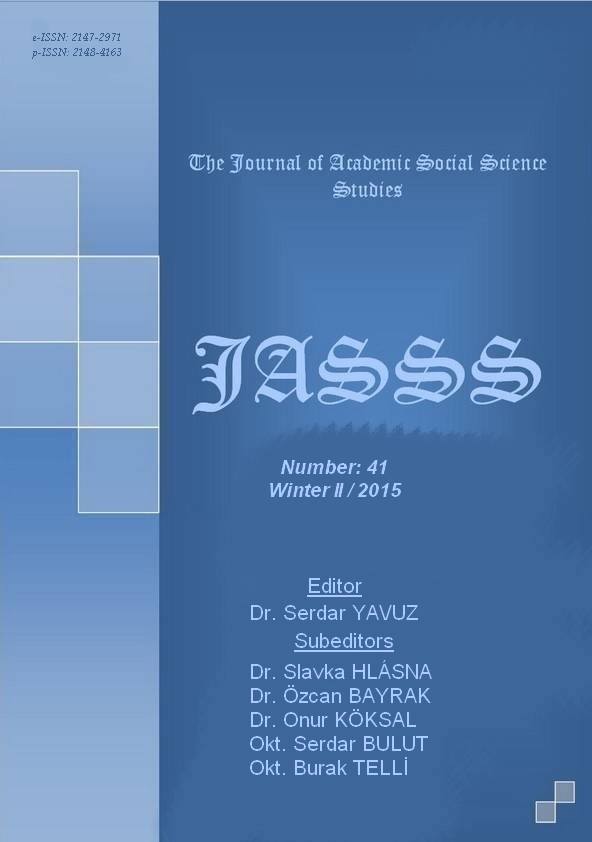ÇEŞİTLİ DEĞİŞKENLER AÇISINDAN KİMYA MÜHENDİSİ ÇALIŞANLARININ İŞ YAŞAMI BEKLENTİLERİNİN ARAŞTIRILMASI
Author :
Abstract
Bu çalışmanın amacı, çalışan kimya mühendislerinin çalışma hayatındaki beklentilerini tespit etmektir. Bu amaçla, kimya mühendislerinin beklentileri, 26 sorudan oluşan bir anket aracılığıyla ölçülmüştür ve soruların analizinde SPSS-18 paket programından yararlanılmıştır. Anket çalışmasına 34 kadın ve 35 erkek olmak üzere toplam 69 kimya mühendisi katılmıştır. Katılımcıların ankete verdiği cevapların değerlendirilmesi işlemi iki kategoride yapılmıştır. İlk olarak ankete katılanlar cinsiyetlerine göre, ikinci etapta ise mesleki tecrübelerine göre (0-5 yıl, 5-10 yıl ile 10 yıl ve üzeri) gruplandırılmıştır. Kadın ve erkek grupları arasında ortalamaların karşılaştırılmasında bağımsız iki örnek t-testi, meslek grupları arasında ortalamaların karşılaştırılmasında tek yönlü varyans analizi (ANOVA) uygulanmıştır. Bu çalışmada Kimya mühendisleri cinsiyete göre karşılaştırıldığında İşçi sağlığı ve iş güvenliği eğitimine gereken önemin verilmesi, projelere teşvik ve ülkemizdeki kimya mühendisliği eğitiminde Avrupa standartlarına ulaşılmasına yönelik hususların gözden geçirilmesi ön plana çıkmıştır. Diğer taraftan mesleki tecrübeye göre değerlendirme yapıldığında kimya mühendisliği bölümlerinin endüstriyel açıdan günümüz koşullarına göre donatılması, çalışma ortamlarındaki hayati tehlikelere karşı alınması gereken önlemler, teknik sorunların çözümünde ekip çalışmasının gerekliliği ve fabrikalarda işletme yöneticiliği yapabilmek için fabrika organizasyonu ve işletme ekonomisi gibi derslerin güncellenmesine yönelik konular kayda değer bulunmuştur.
Keywords
Abstract
The aim of this study is to identify the expectations of the employees in the working life of chemical engineers. For this purpose, chemical engineers’ expectations were measured through a questionnaire consisting of 26 questions and SPSS-18 software package were used for the analysis of the given answers to these questions. A total of 69 chemical engineers, including 34 women and 35 men participated in this survey. The process of assessing the responses given by respondents was conducted in two categories. Firstly, respondents were grouped according to the gender, in the second stage they were grouped according to their professional experience (0-5 years, 5-10 years and 10 years and above). While independent sample t-test was used for comparison between the average of male and female groups, one-way ANOVA was performed for comparison of the average between occupational groups. In this study, when the results were evaluated in terms of gender, reviewing topics like the required importance should be given to health and safety at work, projects should be promoted and reaching European standards in the chemical engineer education in our country came to the fore. On the other hand, when the assessment were done based on professional experience, topics related to equipping chemical engineers’ departments according to industrial aspects of present-day conditions, the measures to be taken against vital hazards in the working environment, the necessity of teamwork in solving technical problems, and updating courses like factory organization and business economics to do business management in factory were noteworthy.





